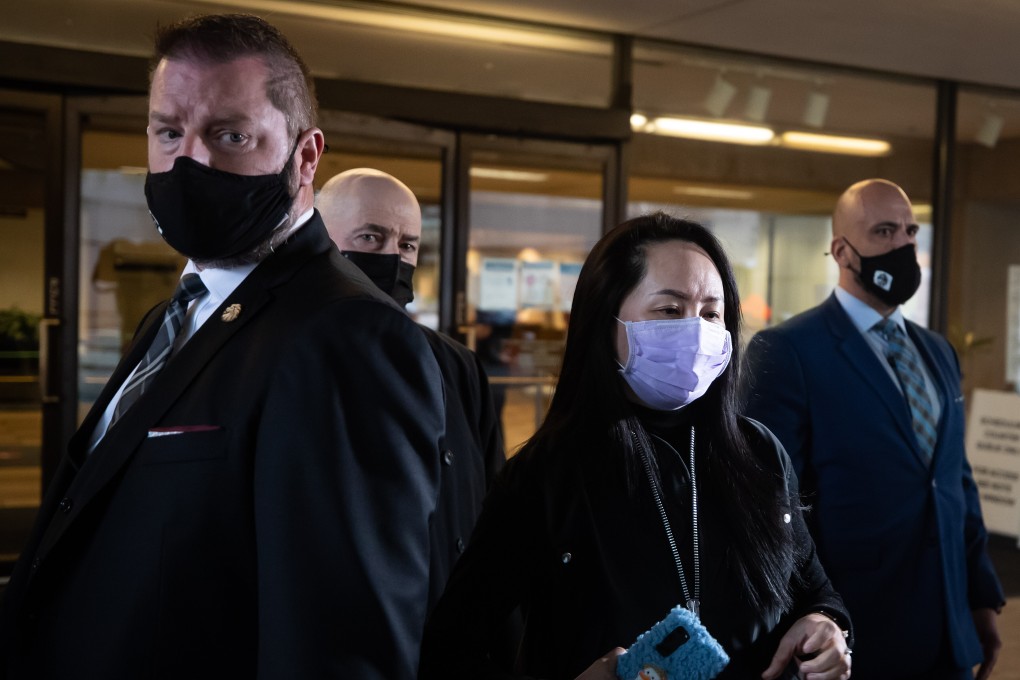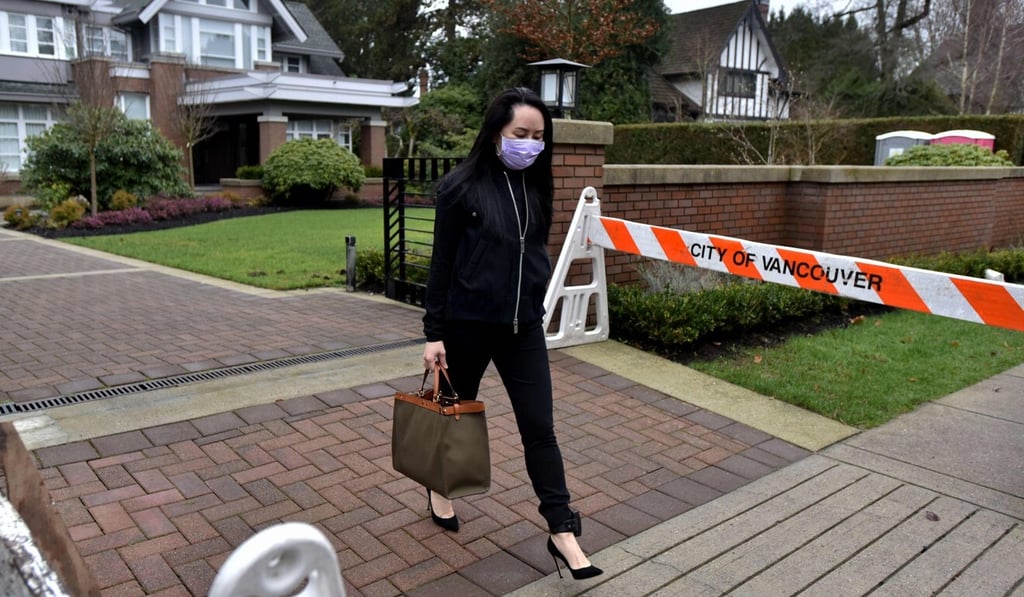Advertisement
Judge refuses to remove Meng Wanzhou’s security guards, who are tasked with preventing her escape
- Meng’s lawyers had argued that the guards put her at risk of catching Covid-19
- She wanted to roam Vancouver unaccompanied, but the request was denied by a judge who called her current restrictions the minimum needed to prevent her escape
Reading Time:4 minutes
Why you can trust SCMP
23

Ian Youngin Vancouver
A Canadian judge has refused to order the removal of private security guards tasked with preventing Huawei Technologies Co. executive Meng Wanzhou from escaping when she leaves her Vancouver mansion.
Meng’s lawyers had argued at a bail hearing in the Supreme Court of British Columbia earlier this month that travelling around the city in the same vehicle as the guards put Meng at risk of Covid-19.
But on Friday, Mr Justice William Ehrcke ordered that the 24-hour watch over Meng be maintained by Lions Gate Risk Management, both at her C$13.6 million (US$10.6 million) home in the exclusive neighbourhood of Shaughnessy, and whenever she leaves the property.
Advertisement
He said the current conditions were “the minimum” required to prevent Meng escaping.

Advertisement
“I am satisfied the current arrangement … does not pose an unacceptable health risk [to Meng],” said Ehrcke.
Advertisement
Select Voice
Choose your listening speed
Get through articles 2x faster
1.25x
250 WPM
Slow
Average
Fast
1.25x